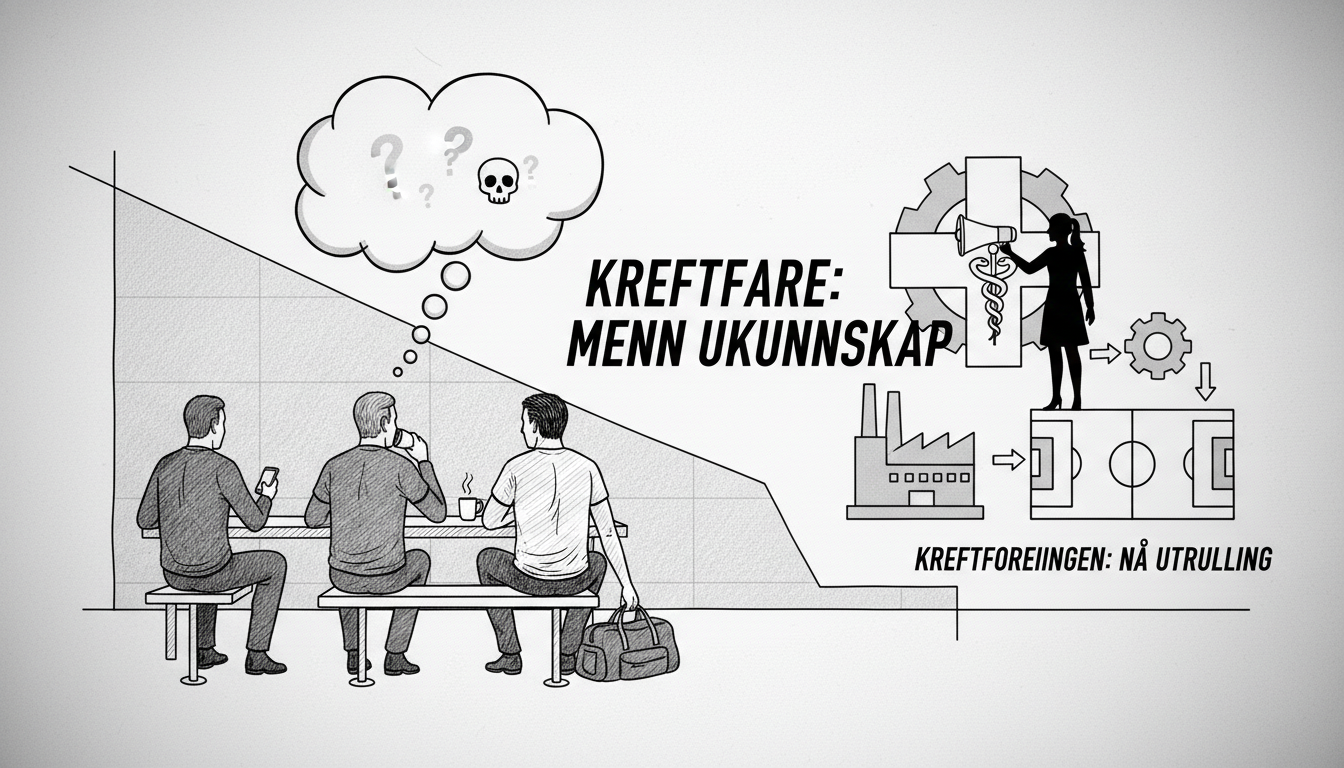Norwegian men know less about cancer than women and rarely visit doctors with symptoms. The Cancer Society warns this knowledge gap could have serious consequences.
Men often miss crucial early cancer detection by delaying doctor visits. Early discovery dramatically improves survival chances, says Cancer Society Secretary General Ingrid Stenstadvold Ross in a statement.
A new report reveals men have significantly lower cancer knowledge regarding symptoms, risk factors and prevention. Half of Norwegian men report poor understanding of cancer warning signs. Many postpone medical visits even when experiencing symptoms.
Only one in five men believes they have good knowledge of cancer signals. Comparatively, one in three women reports the same understanding.
Health information rarely reaches men effectively. They read less health content on official portals, discuss health less with friends and family, and rarely seek health information on social media. Many men admit they neither read nor hear about health topics.
Just 46% of men know HPV spreads sexually and can cause multiple cancer types. Meanwhile, 76% of women understand this connection.
We must strengthen HPV education in schools and better reach men through workplaces, leisure environments and their preferred channels, Ross emphasizes.
The report notes Norway's previous health literacy strategy was gender-neutral despite men's generally lower health competence. We need a specific strategy to improve men's health literacy. Health authorities should take greater responsibility informing men about cancer symptoms, Ross states.
She believes everyone should help increase men's knowledge. Through collaboration with workplaces, sports clubs, unions and other organizations we can reach more men. Improved cancer knowledge among men can save lives.
The findings come from a survey of nearly 1,600 people conducted in October. The report supplements this with official statistics on doctor visits, cancer screening participation, cancer occurrence and mortality causes in Norway.
This persistent gender gap in health awareness reflects broader patterns where men's preventive healthcare often takes lower priority. Addressing this requires tailored communication strategies rather than generic health campaigns.
